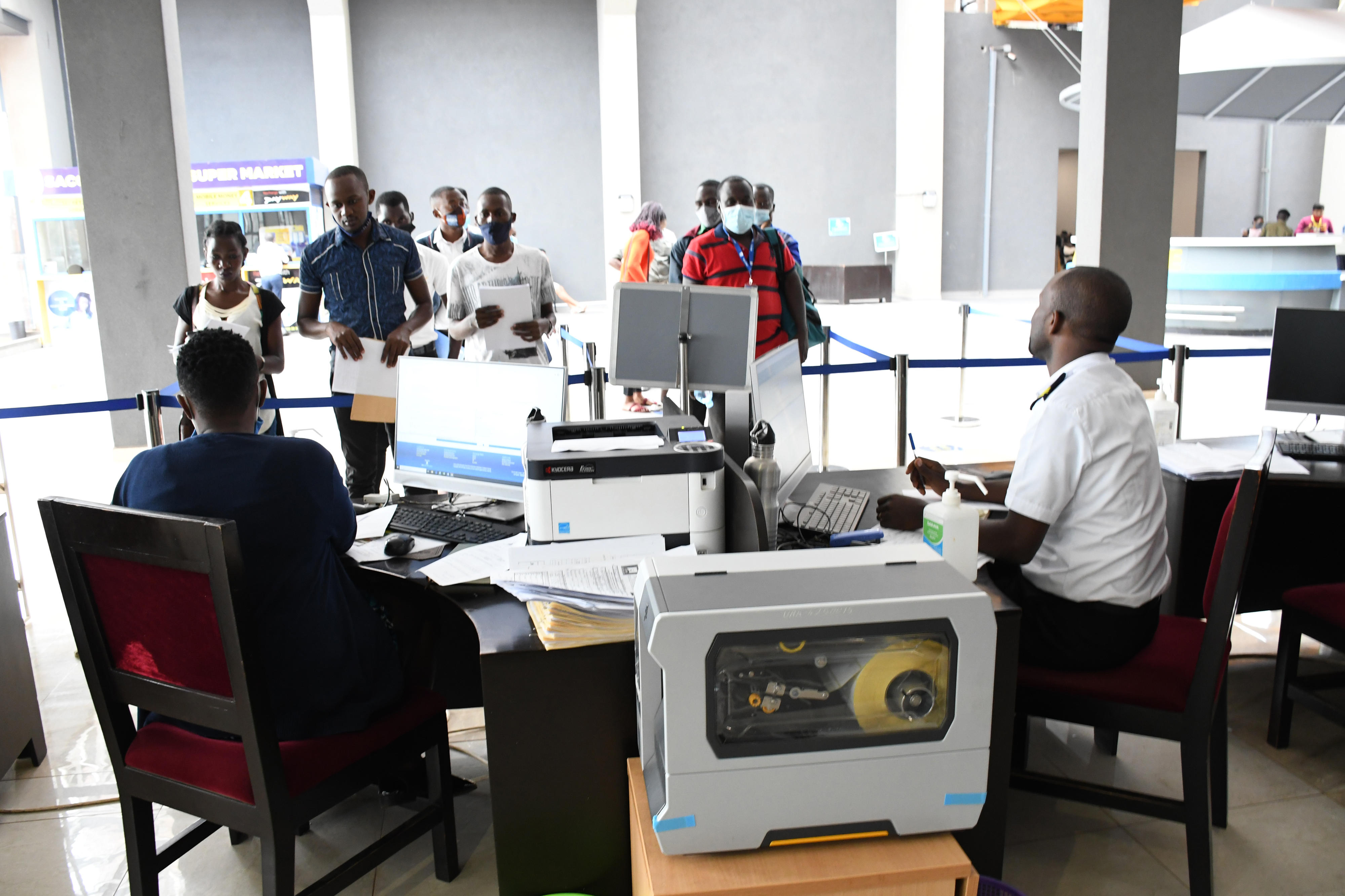
Inspector General of Government Beti Kamya (L) and Uganda Revenue Authority Commissioner General John Musinguzi Rujoki (R). PHOTOS/FILE
The Inspector General of Government (IGG), Ms Beti Kamya, has directed the Uganda Revenue Authority (URA) Commissioner General John Musinguzi Rujoki to recover Shs11b that was paid out in a dubious tax scheme to a group of businessmen.
In an April 19 probe report also copied to the URA board, IGG Kamya also directed the Rujoki-led URA management to put in place a robust verification system that ensures that Value Added Tax (VAT) refunds are paid only when goods are certified to have exited the country.
VAT is one of the rainbow of taxes in the country administered by the VAT Act. It is charged at the rate of 18 percent on the supply of specified goods and services during the course of doing business within the Ugandan boundaries. Some itemised goods and exports attract a zero tax rate.
The ombudsman directed URA to recover Shs3.7b from one Vianney Ndahiro within 12 months, which “was paid to him as VAT refunds based on non-existent exports”.
The investigation into dubious VAT schemes, sources said, is among a series of probes undertaken into mismanagement, rot, and illegal recruitment through cronyism that reportedly continues to dog the tax body.
The ombudsman received a petition wherein it was claimed that Shs9.7b had been doled out to six companies through a dubious VAT refund scheme to six taxpayers. The accused included: Matash Traders Ltd, Ganvi Ventures SMC Ltd, Rhino Seeds Africa Ltd, Mr Ndahiro, Prime Impex 2001 Ltd and Prime Fuels Ltd.
The probe established that the basis for applying for the refunds was that the companies were engaging in export, re-export of goods, and carrying out international transportation merchandise.
Taxpayers who carry out the above businesses were VAT refundable as provided for under Section 42 and Schedule three of the VAT Act.
Mr Ndahiro, according to the report, is a businessman dealing in assorted merchandise. He imports assorted merchandise, sells some of the products locally and also exports. The IGG established that between December 2018 and December 2021, Mr Ndahiro applied for VAT refunds worth Shs3.8b. The basis of the refund was that he had exported assorted goods to South Sudan, whose refund application was audited and URA approved the payment of Shs3.4b.
The report, however, noted, Mr Ndahiro’s exports did not exist in the traffic transit registers at the border points with South Sudan and was, therefore, not entitled to the refund paid.
“Therefore, Shs3.44b was wrongfully claimed and paid to Mr Ndahiro as VAT yet he did not export as required by Schedule 3 of VAT Act,” the report noted.
The report added: “Some of the stamp impressions that appeared on the taxpayers’ documents submitted to URA to process the VAT refunds were found not to be authentic.”
The ombudsman, however, absolved Prime Impex 2001 Ltd, Prime Fuels Ltd, and Rhino Seeds Africa Ltd, concluding that the allegation that they were illegally paid VAT refunds was not true.
The IGG further directed URA to recover Shs6.8b from Matash Traders Ltd, which was paid to the company as VAT for the period between April to December 2021. Ganvi Ventures SMC Ltd was told to repay Shs779.2m, which was paid to the company as VAT refund between January 2019 and December 2021.
Company registration documents show Matash Traders Ltd was incorporated in September 2020. The company’s directors are Ashraf Nsereko and Sofia Mukandihiro Mutumba.
Ganvi Ventures SMC Ltd was incorporated in January 2018 as dealing in exports and imports. Its directors are one Victor Gatana, and Ashraf Nsereko listed as a secretary.
The payments
The IGG report details that between April and December 2021, Matash Traders Ltd applied for VAT refunds worth Shs6.8b. The basis for applying for the refunds was that the company was exporting sundry merchandise from Uganda to South Sudan and other countries. The company submitted a claim, which was audited by the tax man upon which Shs6.873b was paid.
However, the reports further noted that Matash Traders Ltd did not export any goods to South Sudan during the said period “and thus wrongfully claimed and received” the monies.
The IGG established that part of the refund to Matash Traders Ltd of Shs2.98b was approved by Ms Assy Nantongo Ssali, a former manager for Refunds at URA.
“It was clear that there was no justification for payment of the refund at the time since exports had already been shown not to exist and the position had not been altered,” the report noted.
Apparently, URA, has since parted ways with Ms Nantongo “on grounds of negligence and flouting procedures, which are offences as per the URA Offence Schedule”.
“Matash Traders Ltd was therefore not entitled to the refund the company received because it did not fulfill the conditions of an exporter as provided in Schedule 3 of the VAT Act.”
In a terse response, Mr Ibrahim Bbosa, URA’s spokesperson and assistant commissioner for public and corporate affairs, told Monitor they received the report. He did not offer any more details.




